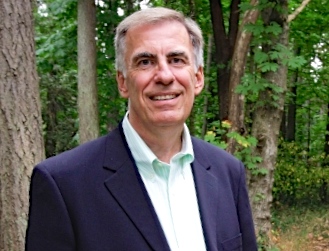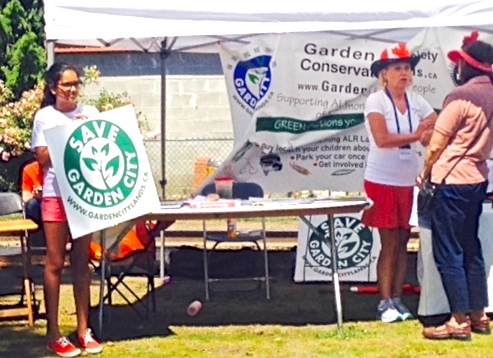There’s a promising trend for the Fraser Estuary, the union of mighty river and Salish Sea that begot the Richmond islands, much of Delta and more.
A citizens group and Ecojustice, along with Surrey and New Westminster, recently took the Vancouver Fraser Port Authority to court. They are aiming to prevent the barging of immense amounts of thermal coal through the estuary. While we wait for a decision, we’re spared the hazards of dirty coal, and we can read an informative report here.
 Another dire threat from the port is their proposed Roberts Bank Terminal 2, a new artificial island of fill in the mouth of the estuary. (Click image for larger version.)
Another dire threat from the port is their proposed Roberts Bank Terminal 2, a new artificial island of fill in the mouth of the estuary. (Click image for larger version.)
A federal review panel for the Terminal 2 plan keeps asking tough questions—this month with a focus on marine life. I’m impressed.
The port has announced that it’s now less intent on dredging the Fraser ship channel deeper. That may be part of the port’s strategy to get Terminal 2 approved, but it’s also an opportunity to stop harm to the estuary.
(Note: If the port doesn’t have to include the environmental impact of dredging as a “cumulative effect” of projects in the estuary, it has a better chance of getting Terminal 2 approved. After that assessment by review panel, the port could consider deeper dredging again.)
We trust a new government will listen well and sift through the old one’s half-decade of Massey Replacement content to find what’s ideal for transportation, safety and the environment.
 They could revive the pre-Christy plan with extra insights.
They could revive the pre-Christy plan with extra insights.
The “Expanding the Tunnel” graphic shows the essence of it, with the eco-excellent “Green Tube” providing two new lanes.
That and the four-lane “Legacy Tube” would comprise the expanded Massey Tunnel in the Highway 99 corridor.
However, it could be best to place the Green Tube upriver, further east, as a new tunnel.
 In that case, it could connect with Richmond’s Nelson Road, which leads into Highway 91, with just a minimal effect on farmland.
In that case, it could connect with Richmond’s Nelson Road, which leads into Highway 91, with just a minimal effect on farmland.
Either way, the aim is to increase the transit capacity by two lanes. (The Green Tube may not be directly used for transit but enables it.)
At least to begin with, Rapid Buses are the likely mode, planned long ago.
The Green Tube is the urgent need. Done fast and well, it could initially divert traffic from the Legacy Tube to expedite the many overdue and near-due renovations. (Legacy lanes could close for the work, a pair at a time.)
 After the external phase of the seismic retrofit, that would entail refurbishing of the Legacy Tube with a new ventilation system, installing of ceramic tile throughout, renewal of the in-tunnel transmission line, and other refinements.
After the external phase of the seismic retrofit, that would entail refurbishing of the Legacy Tube with a new ventilation system, installing of ceramic tile throughout, renewal of the in-tunnel transmission line, and other refinements.
Beyond the tunnel, the renewal would include the seismic retrofit of highway approaches, as well as better overpasses and interchanges. That is described in the Phase 2 Guide for the Massey Project and shown here. (Click to enlarge.)
I’ve addressed the obvious, but the new government may do better. Perhaps, for example, they’ll work with the port toward extended operating hours that help reduce the route-clogging port traffic at peak hours.
A fast-tracked BC environmental assessment would be great. The previous Massey Replacement assessment seemed to skirt the process, but I picture this one embracing it.
In short, we humans are getting in tune with the estuary. Hurray!
_______
Notes: This blog includes an extensive Massey Project section.
For an overview of threats to the estuary, see Let the Fraser Live.
Also, have a look at the Garden City Conservation Society’s input to the City of Richmond’s Transport Department about current options for the Massey Crossing, the Massey Options Rationale sheet.

 As an old saying goes, “Who’d have thunk it?”
As an old saying goes, “Who’d have thunk it?”









 Update after the Richmond council meeting:
Update after the Richmond council meeting:
 Update, Jan 29, 2015: “
Update, Jan 29, 2015: “ The official opposition in the B.C. legislature has announced the
The official opposition in the B.C. legislature has announced the 






 The proposed Aquaculture Activities Regulations have a lot of terms like “deposit” and “control” in order to make it easier for the aquaculture industry to harvest their kill. This jargon really translates to dumping chemicals into waterways. Why not practice in sustainable methods?
The proposed Aquaculture Activities Regulations have a lot of terms like “deposit” and “control” in order to make it easier for the aquaculture industry to harvest their kill. This jargon really translates to dumping chemicals into waterways. Why not practice in sustainable methods?


 The two commissioners with Bill Zylmans on the ALC South Coast Panel include Gordon McCallum of Cloverdale, who is a retired elementary school principal. He is also a Lions Club member. (So far, no luck in finding a photo.)
The two commissioners with Bill Zylmans on the ALC South Coast Panel include Gordon McCallum of Cloverdale, who is a retired elementary school principal. He is also a Lions Club member. (So far, no luck in finding a photo.)

 The key proposal is highly relevant to societies like the Garden City Conservation Society that sometimes have to take on powerful entities. With the inequality in resources and the low standard for taking legal action, it is inevitable that the powerful would use the weapon that the government is proposing to hand them.
The key proposal is highly relevant to societies like the Garden City Conservation Society that sometimes have to take on powerful entities. With the inequality in resources and the low standard for taking legal action, it is inevitable that the powerful would use the weapon that the government is proposing to hand them.









 Update on Bill 24 to May 15, 2014
Update on Bill 24 to May 15, 2014
